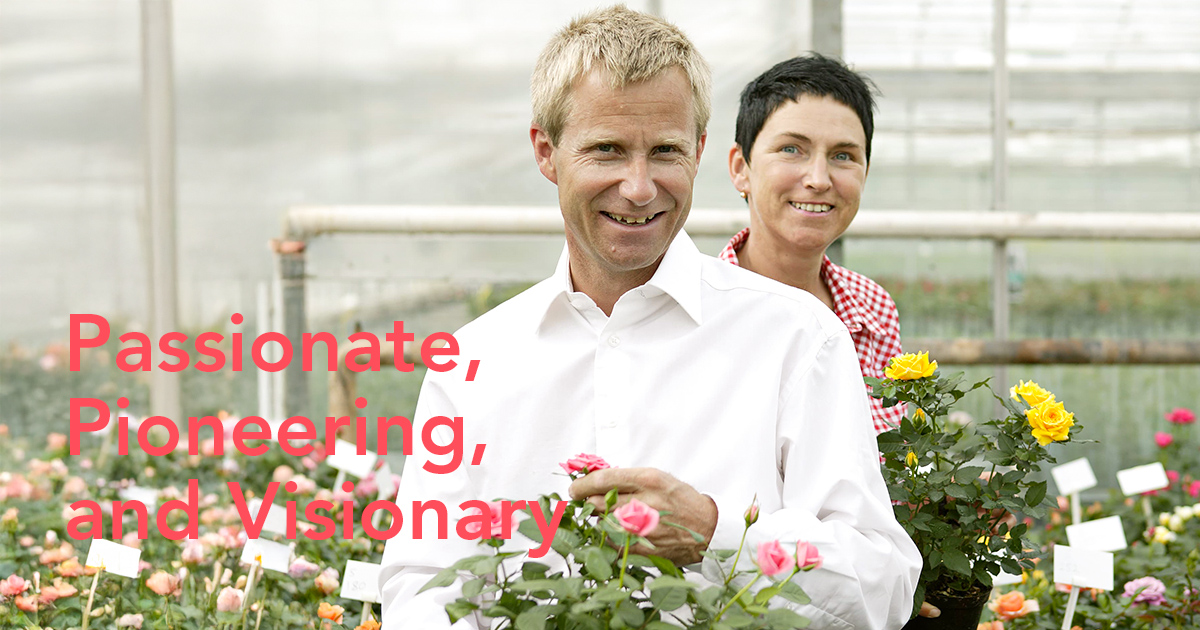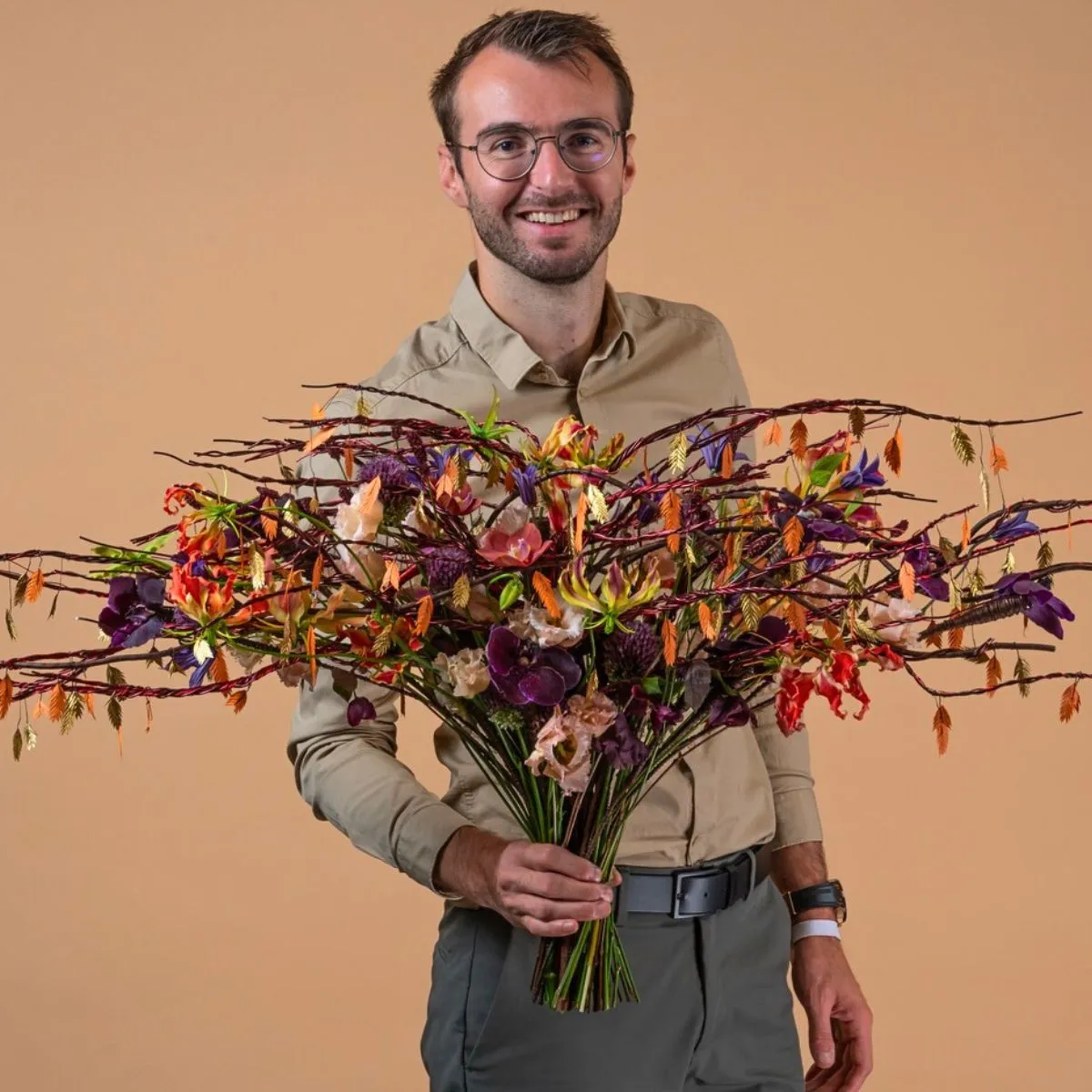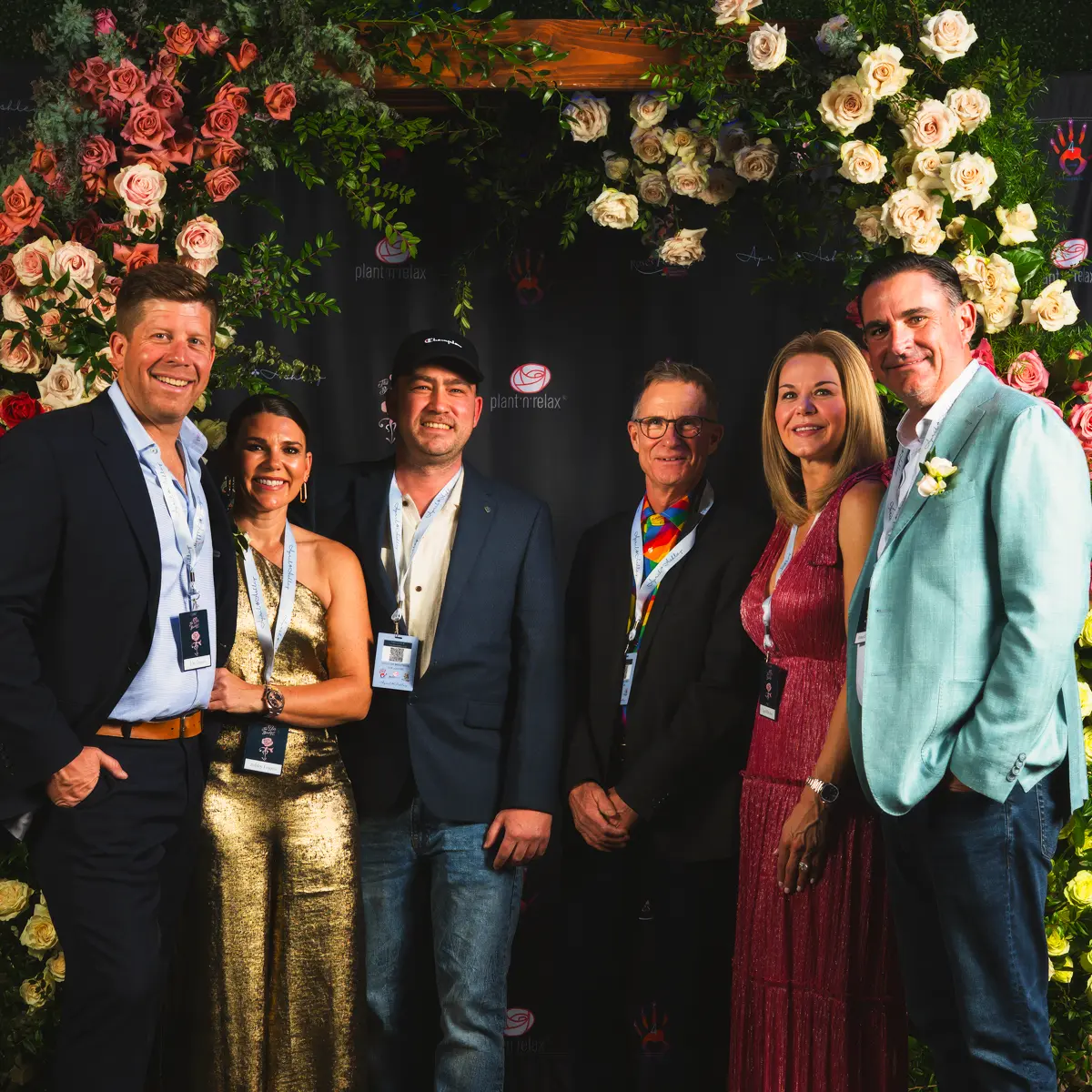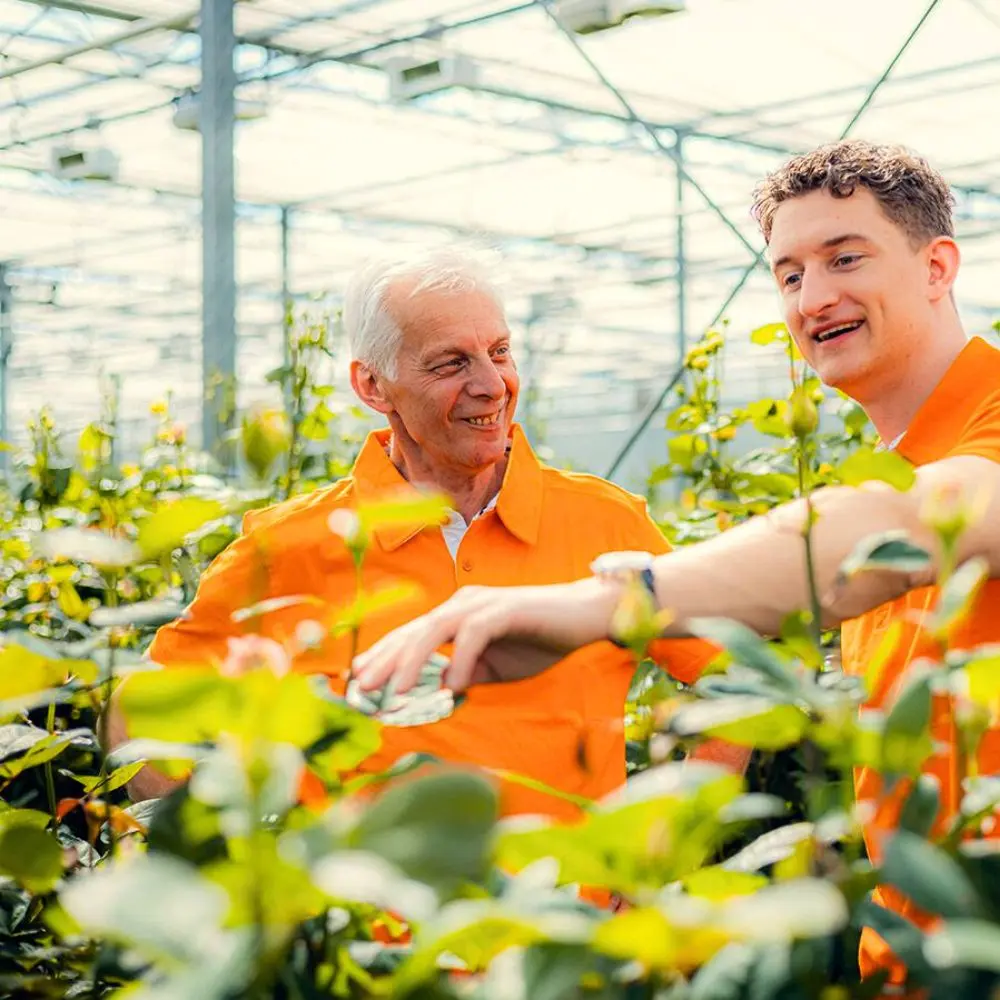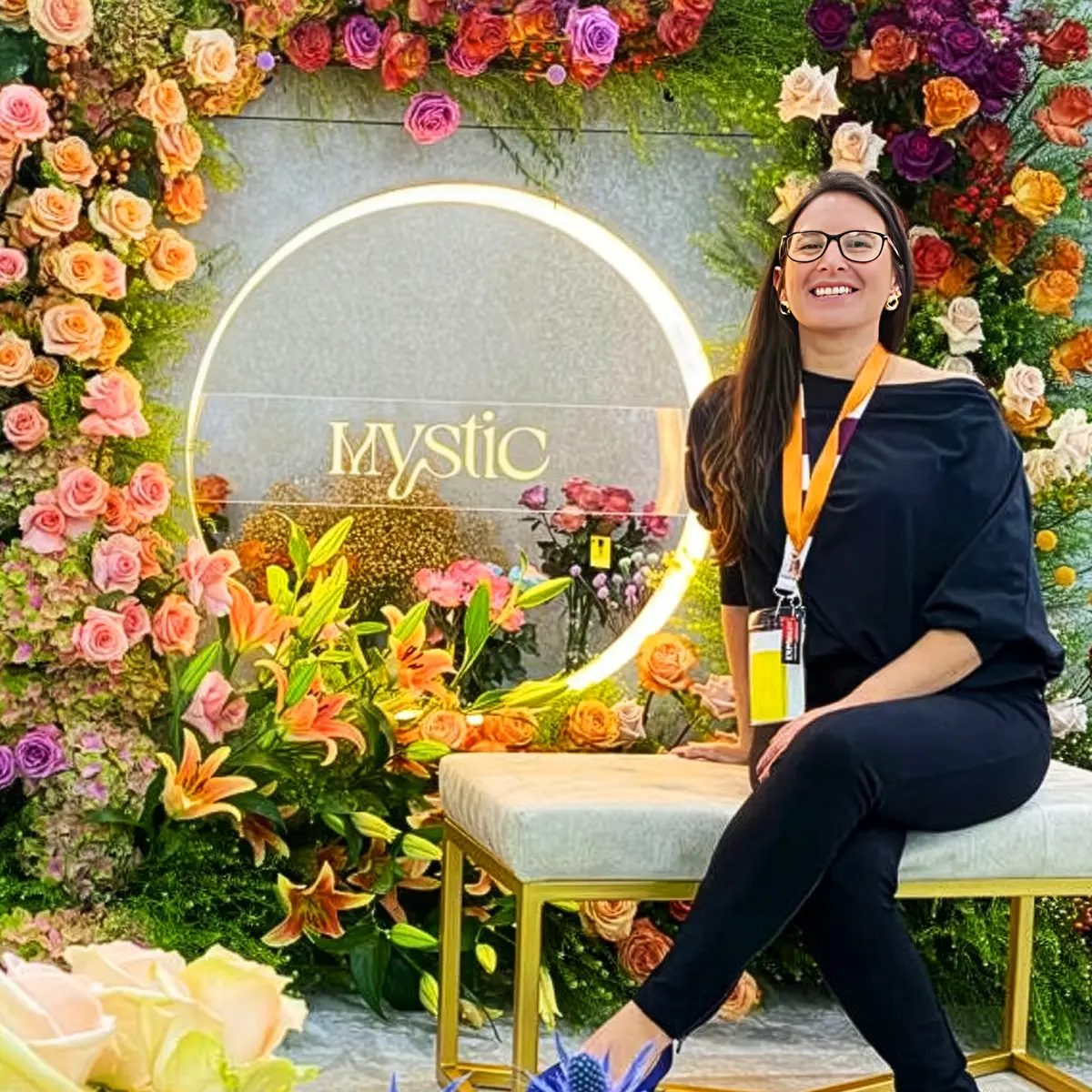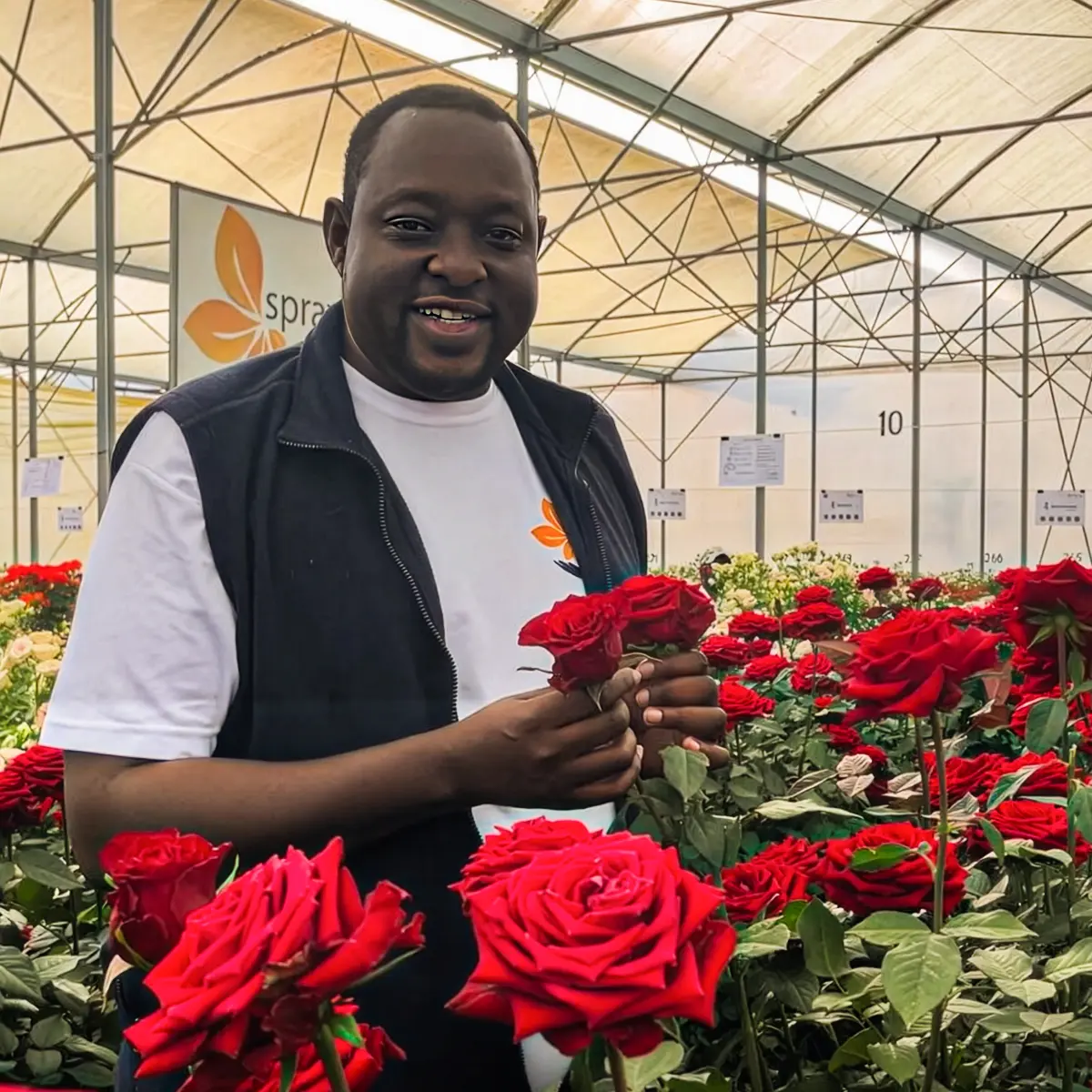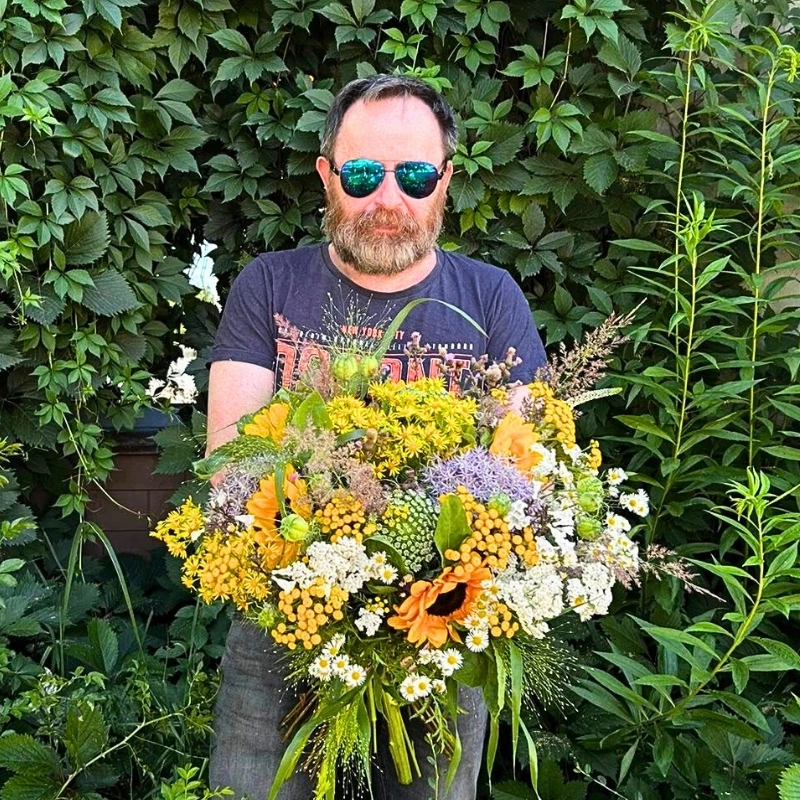Roses have a way of speaking to the soul, and for Rosa Eskelund, they have been both a passion and a lifelong journey. As a renowned rose breeder, Rosa has spent decades perfecting the art of developing breathtaking rose varieties that captivate markets worldwide. Her story is one of dedication, family, and an unyielding love for roses that has blossomed into a global business.
On the 10 questions this week on Thursd, Rosa takes us through her inspiring journey from greenhouse gardener to pioneering breeder for both Roses Forever and Viking Roses. She shares insights into her craft's unique challenges, the floral industry's evolving landscape, and the technological advancements shaping how roses are marketed today. We also get a glimpse of her favorite flowers, her approach to handling stress, and the personal milestones that made 2024 a memorable year for her and her family.
Question 1
For those who don’t know you, who are you, and what do you do?
"I am Rosa Eskelund, a Rose Breeder, trained as a greenhouse gardener in 1982, and have worked with roses since then.I met my husband, Harley, in 1981, and since 1985, we have combined work and family life. We have two children who work passively and actively within our companies. I love my work and am proud that I have succeeded in turning a hobby into something we can live off.
I develop new varieties of roses for both of our companies, Roses Forever & Viking Roses, which are both family-owned. My husband, Harley, and our son, Anders, actively participate in the development departments, and our daughter is involved in the strategic work. The companies Roses Forever (focuses on pot roses & garden roses) and Viking Roses (majorly cut roses) are 100% owned by our family. Our roses are produced on many continents, including: North America, South America, Asia, Europe, Africa, and Oceania
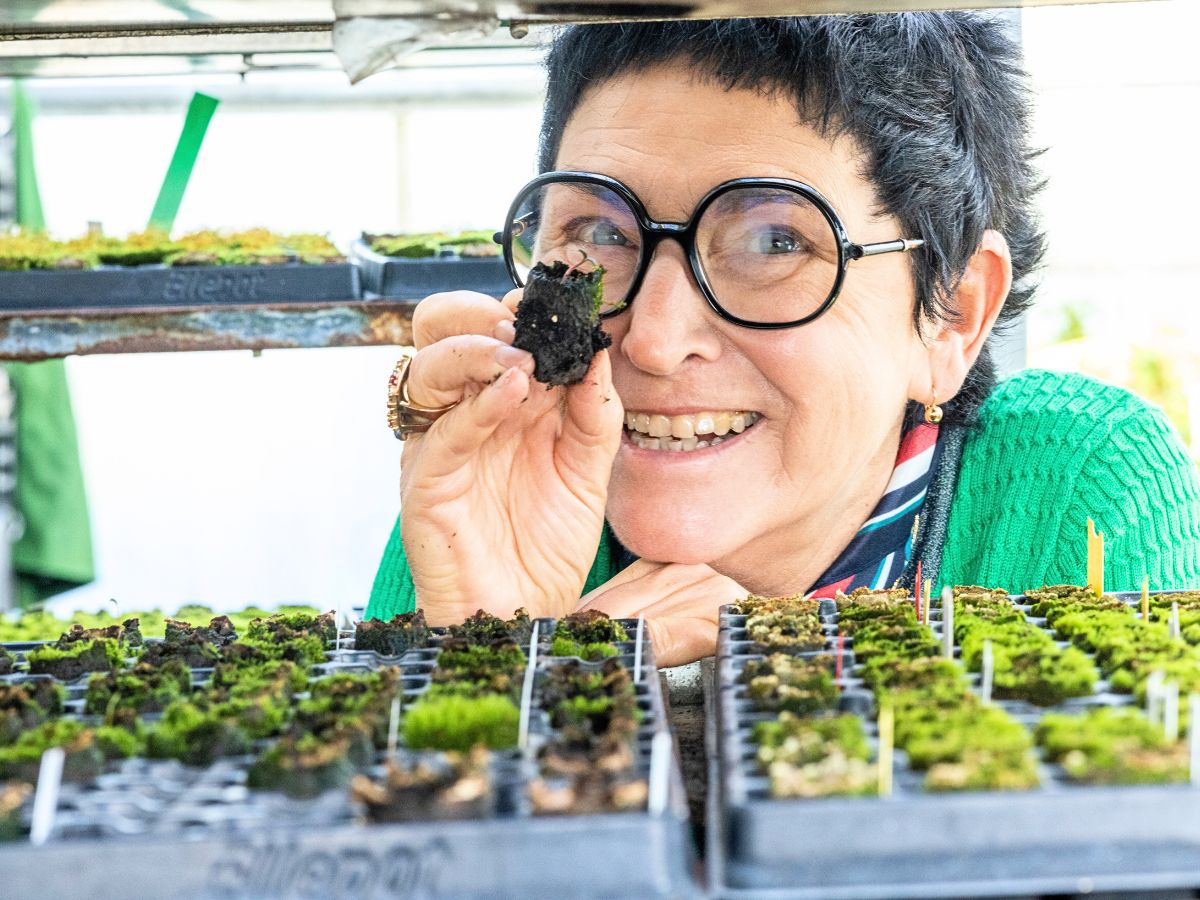
Some of the countries are: Holland, Norway, Italy, China, Malaysia, Colombia, Kenya, USA, Canada, Japan, Korea, and New Zealand. Most rose breeders work with either cut, pot, or garden roses. It is a bit unique that I develop all kinds of roses. The so-called Infinity roses® in the pot rose series, the two series Plant 'N' Relax® and Sweet Home Roses® within outdoor roses, and most recently, fifteen years ago, cut roses with the series Rosa Loves Me & Rosa's Amazing® were added to the program. I also love selling and marketing the roses - I think that is pretty cool
I travel around Europe and visit our partners often. For Asia, North America, and other overseas markets, Anders and Harley take care of it while I work at home in the development greenhouse."
Question 2
What is so special about your job?
"A combination of the actual development and testing of the new varieties, as well as the sales strategy in the different markets, is engaging and fulfilling. Being able to understand the producer's challenges and provide know-how where necessary makes this work worthwhile.
And I have learned a lot of things since I started Garden Rose development, as this is a completely different way to enter the market—but it's fun! Knowledge is important, and regarding pot roses, I have lifelong experience that I love to use and further develop."
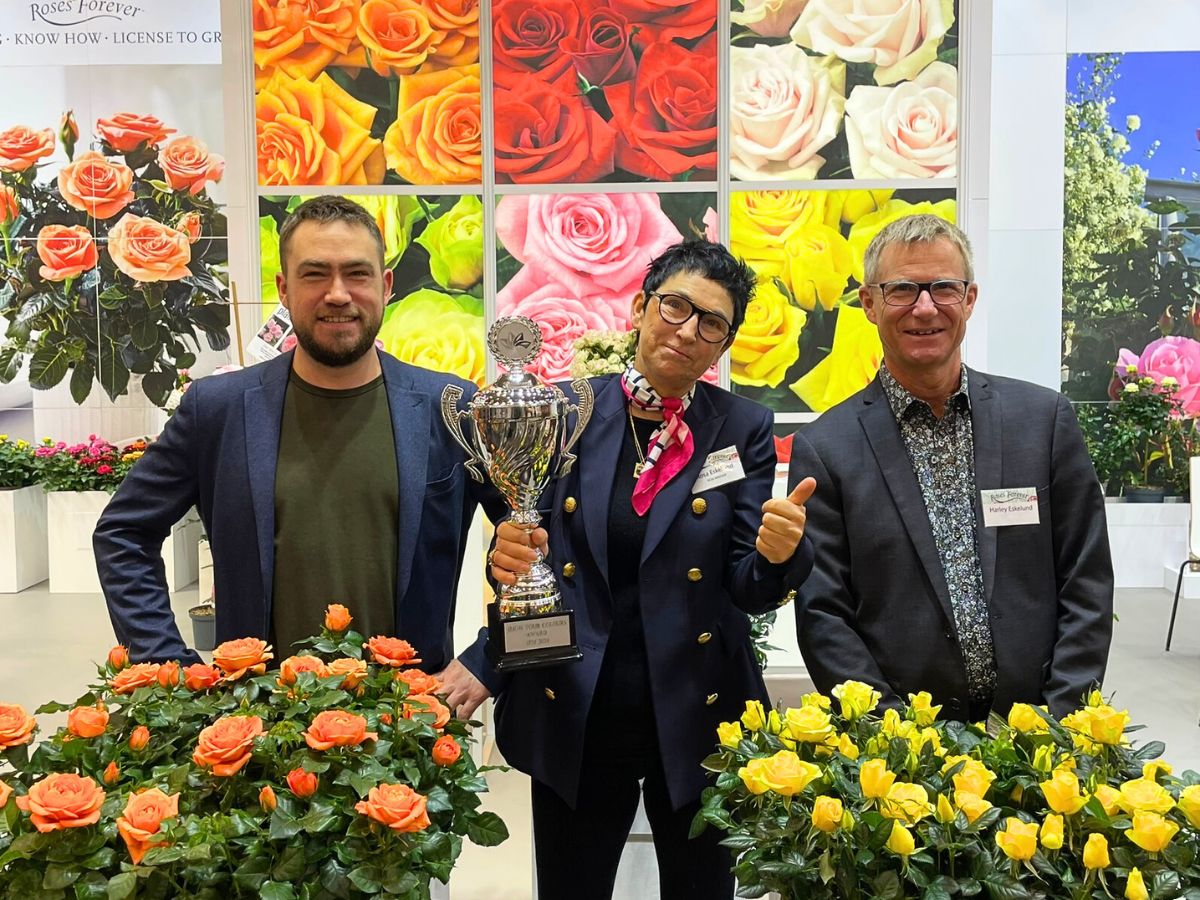
Question 3
Are there any specific challenges or obstacles you’ve faced at work, and how did you overcome them?
"There are always challenges when running a business, but one thing has kept me awake. Since I am only a trained horticulturist, I have never been taught by others in breeding work. The biggest challenge I have had in breeding work was the germination rate. For the first many years, I only had a germination rate of a few percent, which was very unsatisfactory for me. Every new year, I hoped it had gotten better, but it took 20 years before I had the answer. There were no posts on the subject, so only by trying again and again did I become wiser.
I am still not satisfied and will continue to fight to make it better."
Question 4
What are the threats in the industry, and if so, do you have any solutions for them?
"At home in our development greenhouses, we use 100% biological pest control - it works and I am sure that many of our partners do the same to a large extent.
In the development of pot mini roses Infinity, compact varieties are selected, but even more important for the environment is that the rose can be grown in as short a time as possible. For example, in only nine weeks, compared to a regular pot rose, which requires around twelve weeks, more roses can be grown on the same area, minimizing energy consumption per rose.

I found it a challenge that many focus on consumption per m/2, in my opinion, it should be consumption per plant. Concerning the garden roses Plant 'n' Relax®, health and resistance are our focus areas, so that no treatment is required - this applies at all levels from producers to consumers."
Question 5
How has technology, such as e-commerce platforms or digital marketing, affected your industry? What strategies have you employed to stay competitive?
"It seems like it's becoming more and more important to be 'on'. We're getting in touch with new producers around the world faster, and it's quite interesting how much a post on social media moves - I've always used social media actively, targeting professionals in the industry as well as in marketing existing varieties in Roses Forever and Viking Roses.
When I think back to 1988, when we started our company, back then a fax machine was the coolest thing you could buy, and colleagues didn't understand what we were supposed to use it for.
It's crazy, isn't it?"
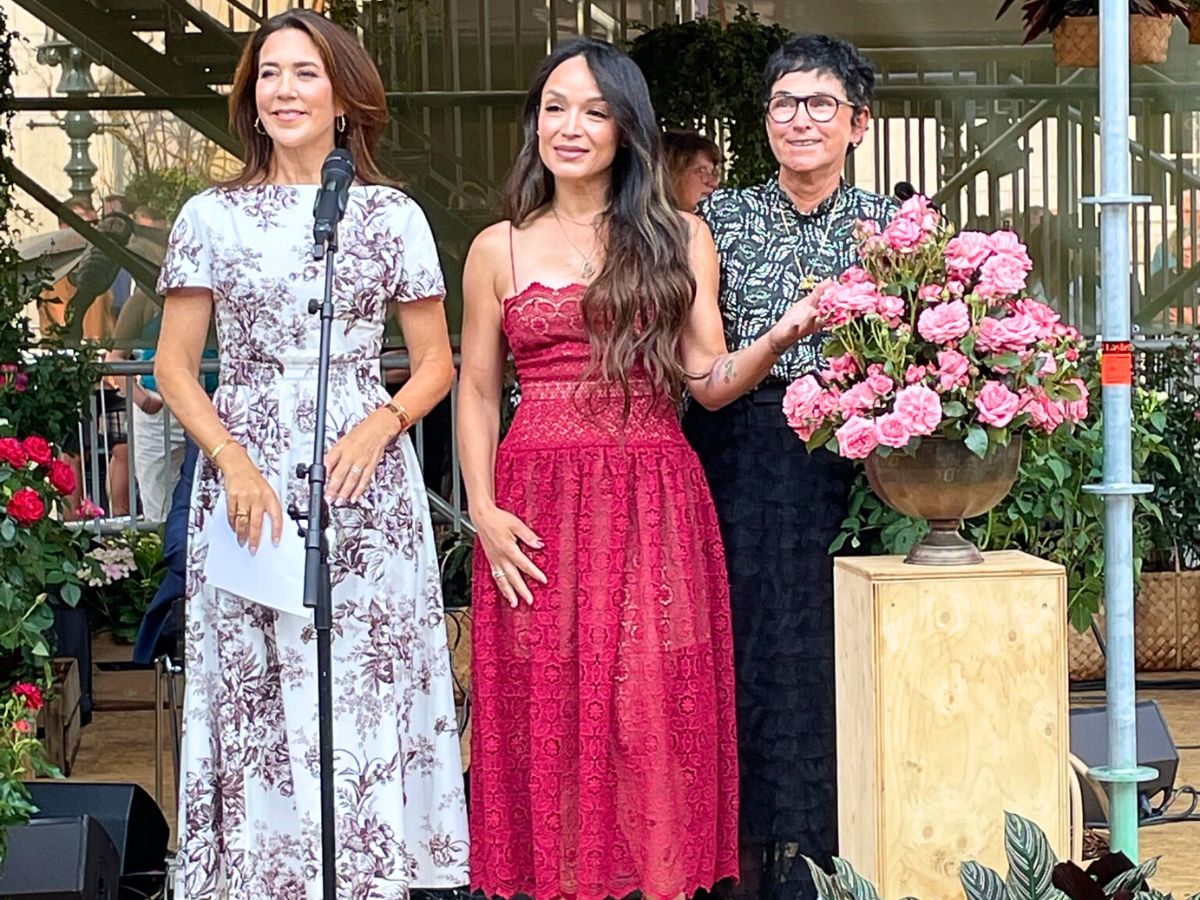
Question 6
Who (in or outside the floral industry) is an inspiring example to you? And Why?
"Svend Jensen, the owner of the nursery where I started my rose adventure. I have a lot to thank him for. Unfortunately, Svend is no longer with us. He inspired me, and was the first in Denmark to make the popular mini roses in long culture 1.5 years and short culture 12 weeks.
Svend Jensen took us (Harley and me) to Holland to look at roses and to the South of France to also experience roses. What we saw was amazing! He was a trained horticulturalist and had a lot of knowledge. Later, after I stopped working with him for a while, we met by chance, and during our conversation, Svend said – Rosa, why don’t you start breeding roses and developing new varieties? He was the starting point, and today I maintain it with The Secret."
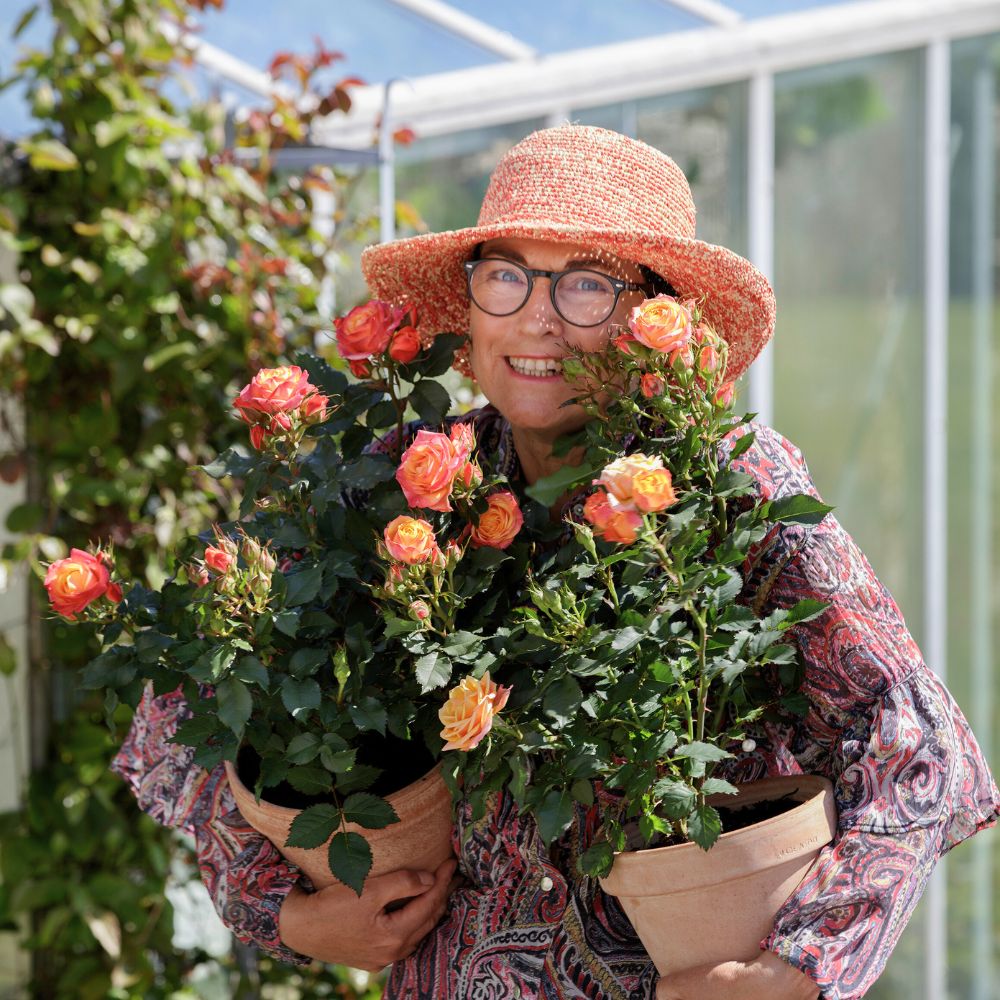
Question 7
How do you handle stress or difficult moments in your life?
"That's an interesting question. In our industry, it's very busy throughout the spring and summer—it can be stressful at times. My way of dealing with it is to go out into nature, luckily we live in a beautiful and quiet place with both forest and beach.
Sitting on a rock by the sea and listening to the waves is very stress-relieving, really effective. And trips to the Mediterranean with the different cultures you can encounter there, for example, if you visit an Italian customer, you have to count on a whole day, as it includes a long lunch break. By the way, I'm Italian myself, my mother is from Sicily, and my father is Danish. In Sicily, the lifestyle is more relaxed."
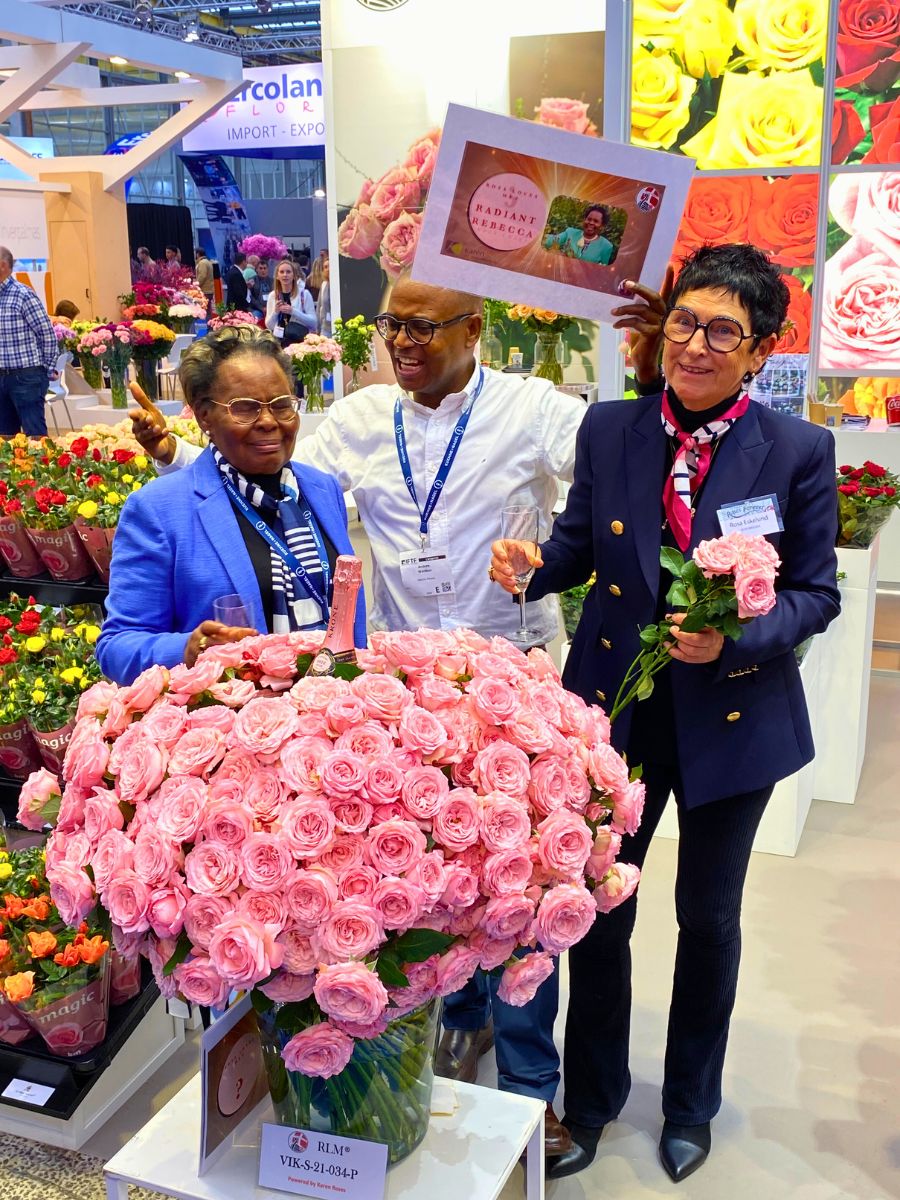
Question 8
What has been the best (floral or non-floral) news for you lately, or of the last year?
"There was a lot of news in 2024: Our son, Anders, joined the company 100%, and that was a huge joy for Harley and me. We won 5 medals and prizes in 2024 for our garden roses, including in Monaco, Baden-Baden, Paris, and several places—that is always good news.
And in January 2025, 'Under The Stars®' won as best cut rose—great to see and looking forward to what else 2025 will bring!"
Question 9
Which is your favorite flower/plant, and why is it good for you?
"That's an easy question, Roses. However, if I have to name two varieties, it would be these two, both of which are our bestsellers Princess of Infinity® (pot-rose), Our Last Summer (garden climbing rose), and not to forget Rosa Loves Me Under the Stars®, all bred by Roses Forever/Viking Roses/Rosa Eskelund."
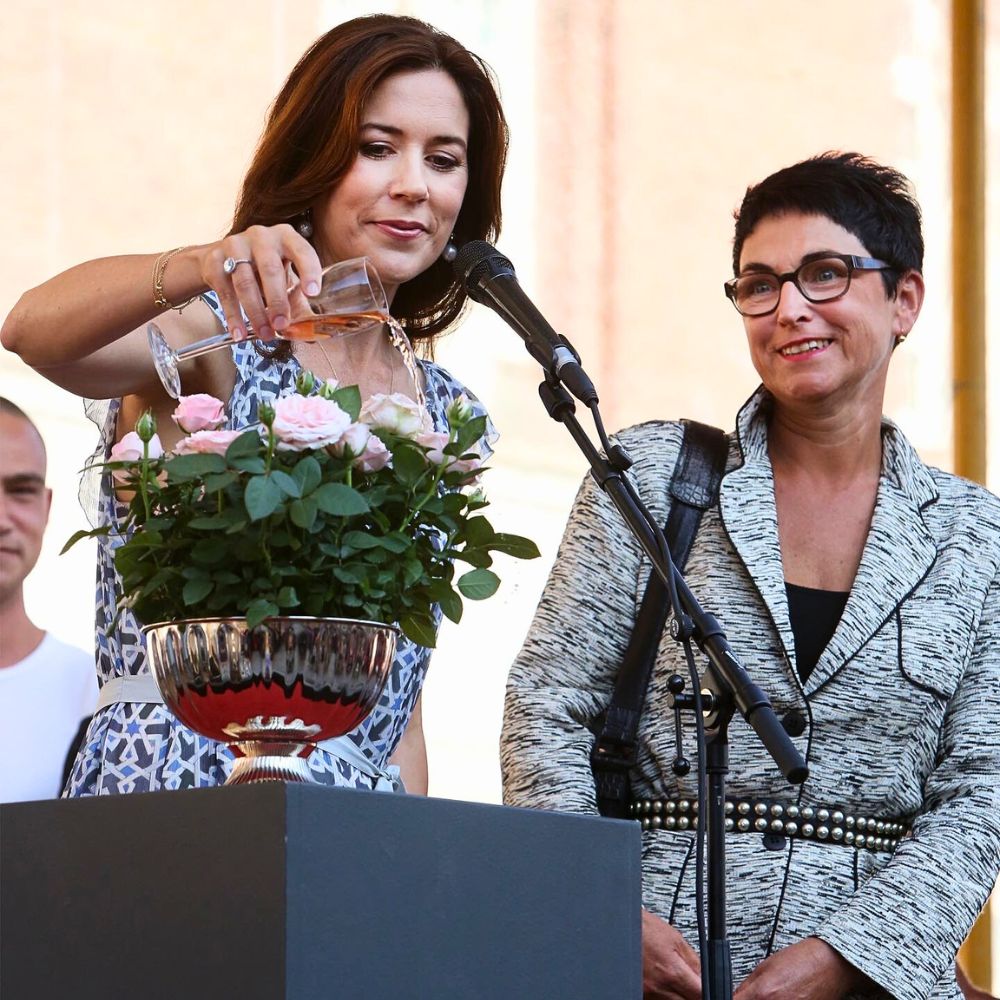
Question 10
What are you doing this weekend?
"This weekend I will go to my garden—the sun is shining and all is starting to grow since now its spring time in Denmark, and then I will in the afternoon go in the breeding greenhouse—just to enjoy all the new baby roses popping up—that's the best time of the year."
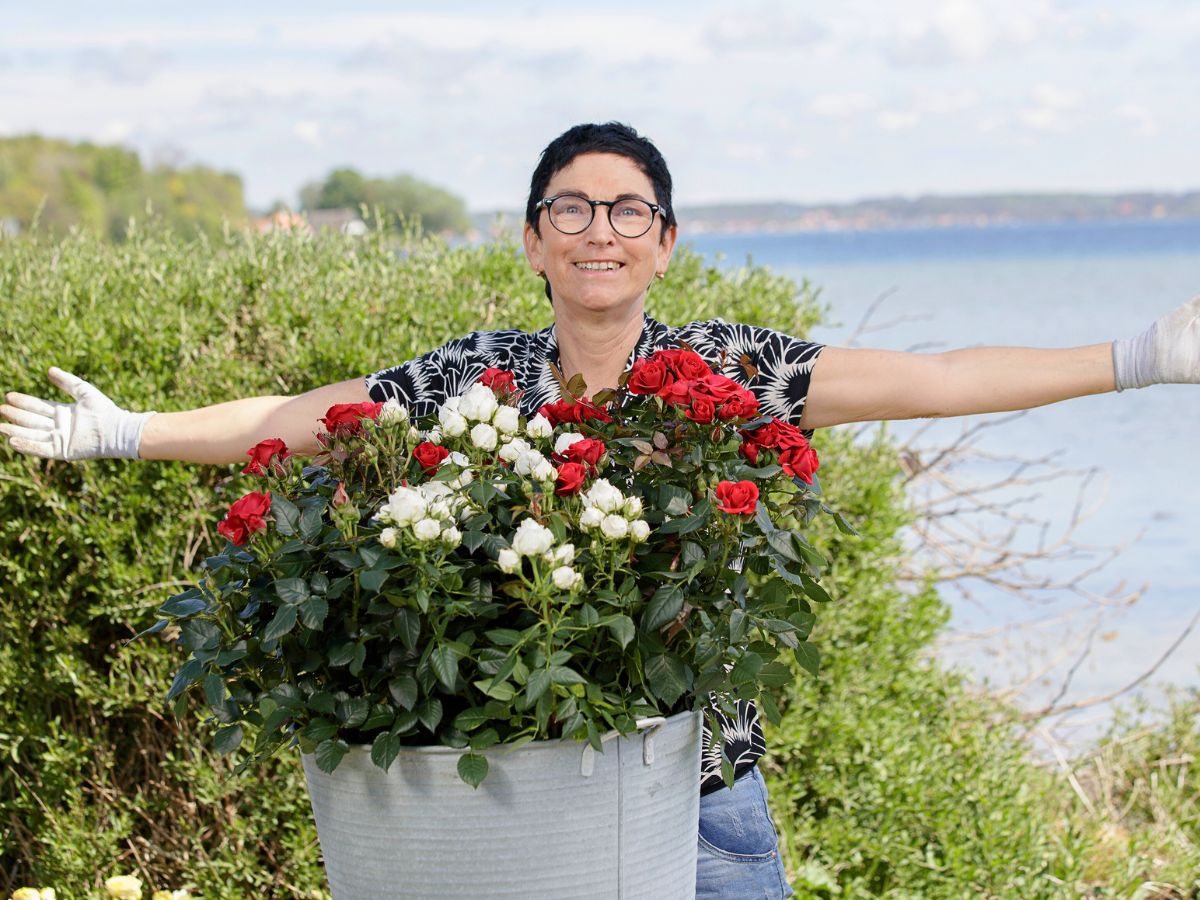
All pictures courtesy of Rosa Eskelund.

